Marian Mondays is a weekly post focusing on Our Blessed Mother, Mary, Queen of Heaven and Earth. In this post, we explore her life, her special mission, her sanctity, and the Biblical bases for the beliefs of the Church.
Mary exemplifies the Christian virtues of faith, hope, and charity. She was chosen, and is, without a doubt, blessed. When we speak of Mary, we oftentimes use the word “fiat.” You hear people saying, “the fiat of Mary,” or “the ultimate fiat.” But what are we actually talking about? “Fiat” is Latin, translating as “let it be done.” In this way, we can understand the word fiat as more than a simple “yes.” Rather, it is the acknowledgement of one’s lack of control, of one's faith, of one's confidence in the face of the unknown.
When we speak of the fiat of Mary, we are, of course, generally referring to the Annunciation, when she bravely proclaims, “I am the handmaiden of the Lord; Let it be done to me according to your word.” Mary, as previously written here, has no idea what lies in store for her. She stands poised on the brink of the great unknown, and yet, she manages to give up her control, to put her faith in the Lord, and accept the unknown. In doing so, the unknown becomes known through her faith in the Lord.
As Adreinne von Speyr wrote: "The `fiat' of the Mother of the Lord is the most humble thing that the maiden can say or accomplish . . . Since she binds herself entirely to God, she becomes entirely free in God . . . She is infinitely at the disposal of the Infinite. She is absolutely ready for everything, for a great deal more, therefore, than she can know, imagine or begin to suspect. Coming from God, this yes is the highest grace; but, coming from us, it is also the highest achievement made possible by grace: unconditional, definitive self-surrender. It is at once faith, hope and love. It is also the original vow, out of which arises every form of definitive Christian commitment to God and in God. It is the synthesis of love and obedience.”
In consideration of what was being asked of her, Mary’s fiat is not only brave, it is eloquent and virtuous. All too often, we answer the Lord with hesitation, half-heartedness, begrudging acceptance—an “I guess so,” or “If I have to” type response. Our own plans, our fears and anxieties, our competing priorities, our sinfulness betray us in these moments. Our selfishness keeps us from embracing our weakness, gazing into the unknown, and accepting the Lord’s will for us.
Our Blessed Mother had ample opportunity for selfishness, both at the first fiat, and later. At the Wedding in Cana, for example, Mary offers another fiat—this one as selfless as the first. We can imagine the happiness of Mary—of any mother—having her child, her son, return home for this joyous event. We can imagine that many of us would want to keep that child with us, for as long as we could. Mary likely felt the same way about her child, the Christ child. But she chose to let Him go, to start His mission on earth, with the fiat, "Do whatever he tells you." (John 2:5). Mary begins the ministry of Jesus, not knowing what lay in store, but trusting in the Lord. When we meditate upon the Mysteries of the Rosary, we are not only contemplating the life of Jesus, we are relishing the repeated fiat of Mary, and we are learning from both. To what will we say “Let it be done” today? How will we respond to our Lord’s call?
An excerpt from a Homily of Praise to the Virgin’s Fiat
Written by St. Bernard of Clairvaux (1090-1153)
You have heard, O Virgin, that you will conceive and bear a son; you have heard that it will not be by man but by the Holy Spirit. The angel awaits an answer; it is time for him to return to God who sent him. We too are waiting, O Lady, for your word of compassion; the sentence of condemnation weighs heavily upon us.
The price of our salvation is offered to you. We shall be set free at once if you consent. In the eternal Word of God we all came to be, and behold, we die. In your brief response we are to be remade in order to be recalled to life.
Tearful Adam with his sorrowing family begs this of you, O loving Virgin, in their exile from Paradise. Abraham begs it, David begs it. All the other holy patriarchs, your ancestors, ask it of you, as they dwell in the country of the shadow of death. This is what the whole earth waits for, prostrate at your feet. It is right in doing so, for on your word depends comfort for the wretched, ransom for the captive, freedom for the condemned, indeed, salvation for all the sons of Adam, the whole of your race.
Answer quickly, O Virgin. Reply in haste to the angel, or rather through the angel to the Lord. Answer with a word, receive the Word of God. Speak your own word, conceive the divine Word. Breathe a passing word, embrace the eternal Word.
Why do you delay, why are you afraid? Believe, give praise, and receive. Let humility be bold, let modesty be confident. This is no time for virginal simplicity to forget prudence. In this matter alone, O prudent Virgin, do not fear to be presumptuous. Though modest silence is pleasing, dutiful speech is now more necessary. Open your heart to faith, O blessed Virgin, your lips to praise, your womb to the Creator. See, the desired of all nations is at your door, knocking to enter. If he should pass by because of your delay, in sorrow you would begin to seek him afresh, the One whom your soul loves. Arise, hasten, open. Arise in faith, hasten in devotion, open in praise and thanksgiving. Behold the handmaid of the Lord, she says, be it done to me according to your word.
Why pray the Rosary every day for a year?
Each time the Blessed Virgin has appeared-- whether it be to Saint Bernadette Soubirous at Lourdes; to Lucia, Jacinta, and Francisco at Fatima; or to Mariette Beco at Banneux-- she has asserted the importance, saving grace, and power of praying the Holy Rosary on a daily basis. Based upon her words, the Rosary is penance and conversion for sinners, a pathway to peace, an end to war, and a powerful act of faith in Jesus Christ. Pope Paul VI presented the Rosary as a powerful means to reach Christ "not merely with Mary but indeed, insofar as this is possible to us, in the same way as Mary, who is certainly the one who thought about Him more than anyone else has ever done."
To show us how this is done, perhaps no one has been more eloquent than the great Cardinal Newman, who wrote: "The great power of the Rosary consists in the fact that it translates the Creed into Prayer. Of course, the Creed is already in a certain sense a prayer and a great act of homage towards God, but the Rosary brings us to meditate again on the great truth of His life and death, and brings this truth close to our hearts. Even Christians, although they know God, usually fear rather than love Him. The strength of the Rosary lies in the particular manner in which it considers these mysteries, since all our thinking about Christ is intertwined with the thought of His Mother, in the relations between Mother and Son; the Holy Family is presented to us, the home in which God lived His infinite love."
As Mary said at Fatima, "Jesus wants to use you to make Me known and loved. He wishes to establish the devotion to My Immaculate Heart throughout the world. I promise salvation to whoever embraces it; these souls will be dear to God, like flowers put by Me to adorn his throne."

Subscribe to:
Post Comments (Atom)






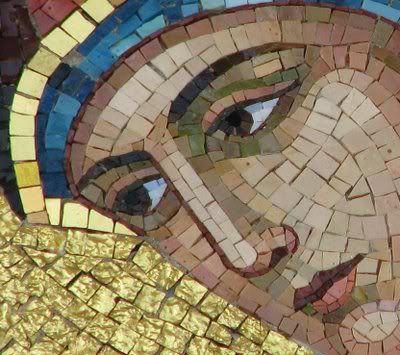
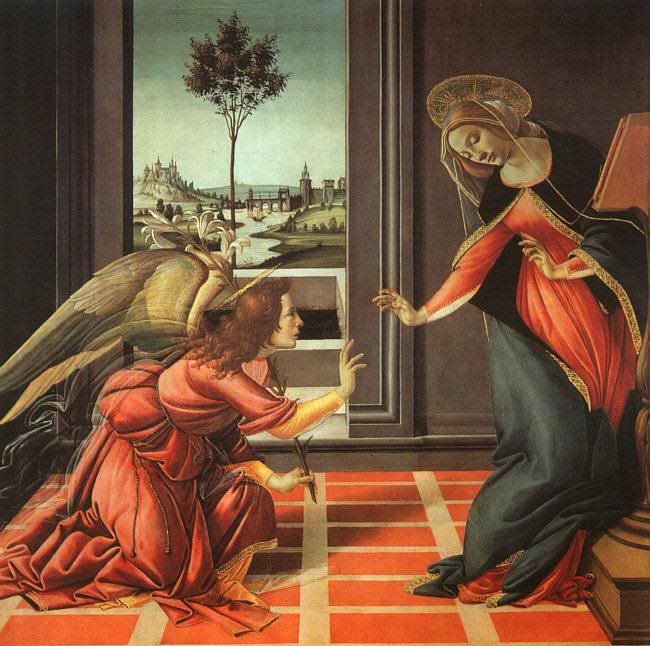
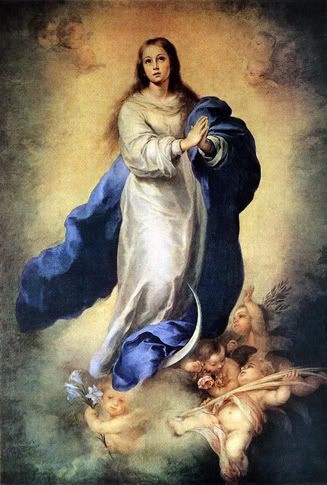


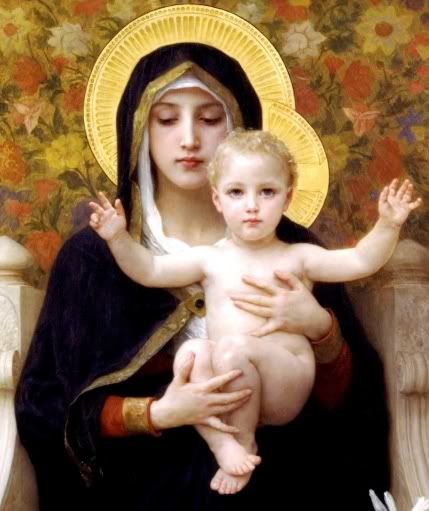
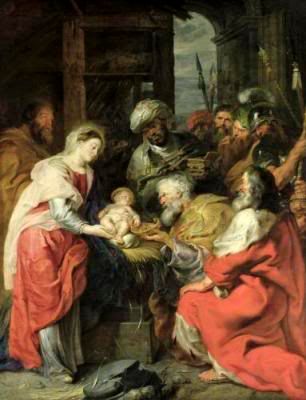
0 comments:
Post a Comment
Thanks for leaving a comment. If you wish to submit a prayer request, however, please do so above, using the "Contact" tab.